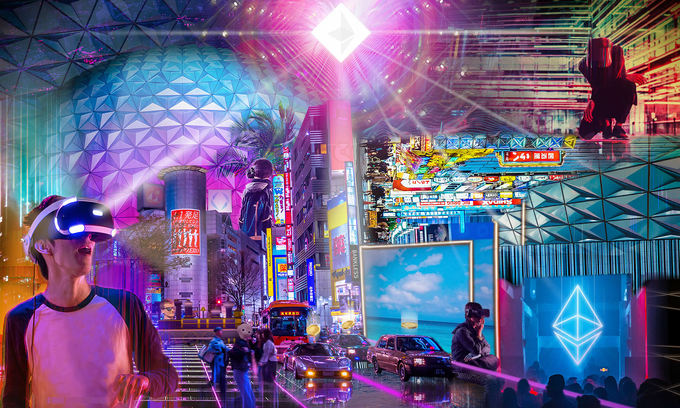Blockchain metaverse ecosystems gain traction as brands create digital experiences
Jan 31, 2022
Blockchain-based metaverse environments allow brands to offer more user benefits, such as increased interactivity and ownership of virtual items, but will it catch on?

Billion-dollar companies are taking the Metaverse by storm as consumers have shown heightened interest in virtual, interactive, three-dimensional experiences that take place online.
While the “Metaverse” is still a new concept, research firm Strategy Analytics found that the global Metaverse market is forecasted to hit nearly $42 billion by 2026. This very well may be the case, as a handful of businesses including Nike and Walmart have begun exploring consumer experiences in metaverse environments.
To understand how and why brands are leveraging the Metaverse, it’s key to point out the role that NFTs, or nonfungible tokens, play within these ecosystems. While the year 2021 saw an influx of NFTs, the rise of the Metaverse is predicted to highlight the importance of utility behind NFTs.
According to Baschuk, these wearable NFTs include athlete jerseys, which will be used to dress and provide special powers to The Sandbox avatars. “Dallas Cowboys’ Zeke and Dak will kick this off, as the players’ wearable jerseys and shoulder pads will boost a user’s avatars’ skills and powers,” he said.
While this specific example may appeal to The Sandbox gaming community, the concept behind it is universal for brands entering the Metaverse. For instance, Baschuk explained that NFTs within virtual ecosystems allow for companies to monetize assets across a blockchain network, enhancing interactivity for consumers and fans.
To put this in perspective, consumer electronics giant Samsung recently announced that it will have a virtual replica of its New York physical store located within Decentraland, another leading metaverse ecosystem. The store, known as the “Samsung 837X shop,” will be accessible in Decentraland for a limited time.
Overall, Samsung explained that its 837X store will serve as a foundation for the future, which will offer significant utility to its visitors. In turn, the company is looking at ways in which badges earned at 837X will offer access and utility for future events and experiences in its virtual space. “In the future, it’s our hope that everyone who visits our world will be able to enhance their online experience in the metaverse and their real-world experience with Samsung products,” commented Samsung’s spokesperson.
While Samsung was one of the first major brands to launch a virtual store in Decentraland this year, other organizations are following suit. Most recently Tennis Australia, the organizer of the Australian Open (AO), partnered with Decentraland to host the AO in the metaverse. This virtual environment contains key areas in Melbourne Park, including the Rod Laver Arena and Grand Slam Park. AO Decentraland 2022 will take place Jan. 17–30, mirroring the in-real-life tournament schedule.
Ridley Plummer, Tennis Australia NFT and metaverse project lead, told Cointelegraph that it was a natural progression for the event to expand into the metaverse. Plummer shared that this was also the case due to border closures brought about by the COVID-19 pandemic, which has made it more difficult for fans to attend the event in person:
“We can only have a certain number of people in the area and the arenas, so we are bringing the AO to the world by allowing fans to partake in a virtual, interactive experience on Decentraland. This will enhance our fans’ viewing experience at home from their television by providing users with a more voyeuristic look at what’s happening at Melbourne Park.”
Plummer elaborated that AO’s metaverse environment features entertainment hubs where fans can watch replays of tennis matches, along with historical footage of past tournaments. He noted that during the final weekend of the event, fans will have access to behind-the-scenes footage that will show players during practice sessions and more.
Plummer added that users on Decentraland can walk around Melbourne Park with their avatars to collect wearables and play virtual games to earn NFTs. “There are items and branding we can add within Decentraland that enhance experiences for our partners as well from a play-to-earn perspective. We have a series of gamification within Decentraland.”
Given the unique experiences NFTs can bring to consumers and fans, it’s equally important to highlight the benefits offered by a blockchain-based metaverse ecosystem. For instance, while many brands have started to engage users through connected environments, blockchain networks enable digital asset ownership while demonstrating the true power of Web3.